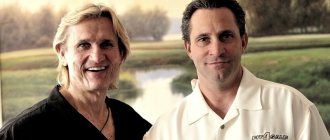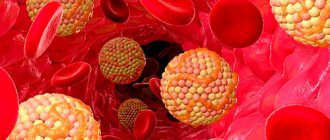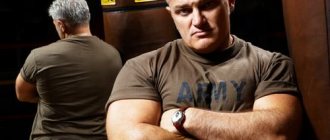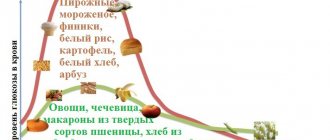Advice on “how to maintain a healthy lifestyle” is becoming an increasingly popular request on Internet search engines. It’s unlikely that anyone would argue that taking care of your health is a waste of time. Moreover, in modern society, having healthy habits not only prolongs life, but also provides significant benefits. Research shows that such people occupy high positions and earn more than those who do not monitor their diet and physical activity. If you are interested in other stories on the topic of a healthy lifestyle, go to our website, where we are waiting for you to find many interesting and informative articles! And how to maintain a correct healthy lifestyle later in this article.
The concept of a healthy lifestyle, or what is it?
A healthy lifestyle (HLS) is a human skill, which consists of the ability to perform special actions (or, conversely, refuse to perform them) aimed at maintaining and improving one’s health and preventing diseases.
Disease prevention
is a system of measures to prevent or eliminate the causes of disease. Prevention comes at different levels: primary prevention is a system of measures to eliminate the causes and factors of disease, secondary prevention is the prevention of the progression of an existing disease, and tertiary prevention is the prevention of relapses of diseases. Within the framework of a healthy lifestyle, it is customary to consider primary prevention of diseases.
Have the ability to lead a healthy lifestyle
- this means having special knowledge about what is healthy and what is not, how to discipline yourself, build the right daily routine, as well as perform special procedures and eat the right food.
Films about a healthy lifestyle
Many of those who wanted to change their lives stopped halfway or did not begin to move towards their goal at all. Some lacked willpower, others lacked motivation. Films about a healthy lifestyle will help you take a fresh look at the problem and how you can overcome it:
- “Run, fat man, run”
- talks about the power of sport, how much it can toughen a person mentally and physically. - “The Karate Kid”
teaches you to fight with yourself and not despair in the most difficult situations, and the love for Japanese martial art helped not only to deal with aggressive peers, but also to believe in yourself. - “Forrest Gump”
- the ability to run quickly helps the main character become famous and go to university, and skillful play of table tennis made him a world champion.
Why lead a healthy life?
Each of us has our own physical and mental characteristics, some of which are transmitted to us at the genetic level. Someone, without performing any physical exercise or special nutritional recommendations, always remains in good shape, someone is not prone to colds, and in winter it is impossible to infect them with acute respiratory infections, someone is able to sleep 4 hours a day and remain cheerful . All these abilities are more than exceptions to the rule, characteristic only of some people. And we can certainly say that there is no ideally healthy person in the world who has all the advantages listed above. That is why it is important for us to know our weak points and be able to take all necessary measures to prevent diseases. This is the role of a healthy lifestyle.
Application of healthy lifestyle knowledge can be useful to any person in a variety of situations, for example, it will allow:
- Raising children correctly (parents, educators, educators and teachers).
- Live longer and feel better – for absolutely everyone.
- Do not ruin your health in youth for everyone who studies a lot while in college and who works tirelessly to climb the career ladder.
- Organize events and make the right decisions if you are involved in organizing human pastime, for example, you are an employer, a school director or a university rector.
It is worth noting that the culture of a healthy lifestyle affects the quality of life of any person, which is associated with the achievement of longevity, the ability to fully perform social functions and actively participate in family, work, and social life of society.
Books about a healthy lifestyle
Many people have wondered what a healthy lifestyle is. Preserving your health is a voluntary matter and everyone should have their own motivation. Some people are helped by advice from friends, others by educational films and TV shows, and others by books about a healthy lifestyle. Experts in this field recommend reading:
- “350 Dukan Diet Recipes”
- Some people know that healthy foods that help make your figure slimmer can be tasty. - “No Sugar”
- the author talks about the existing degrees of addiction to sweets and ways to combat them. - “The Science of Sleep”
is a useful book about the main aspect of a healthy lifestyle, in which the author explains how to sleep properly and how the body behaves at this time. - “The Book of the Body”
teaches you how to gain physical and mental strength, love your body, and how all this will help in different areas of life.
How to learn it
Many of us sometimes think about how to lead a healthy lifestyle: exercise or eat a moderate and balanced diet. But often things don’t go further than promising yourself that you need to change your life from Monday. These promises can be repeated many times until a really serious problem appears, which will be quite difficult to cope with.
In order not to bring your body to such situations, you need to follow special rules
, which will help maintain your health and which you will learn about from the lessons of this course.
Compliance with these rules must be targeted
and
systematic
. To do this, firstly, you need to decide what you want to achieve by leading a healthy lifestyle and set a specific goal. Secondly, you need to try and confidently strive for your goal every day. When leading a healthy lifestyle, as in any other endeavor, it is very important to develop a routine, habits and self-discipline.
One of the important habits should be proper nutrition, consisting of a balanced diet and taken in the right mode. No less important for health are such components as the correct balance of work and rest, sleep, moderate physical activity, understanding the biological rhythms of your body and much more. However, even a person leading a healthy lifestyle is not immune from all diseases, and therefore it is important to know how to behave correctly in the event of illness or injury. To successfully lead a healthy lifestyle, you need to be able to understand your body, learn from your own experience, and constantly expand your knowledge.
A healthy life also requires a complete rejection of bad habits that can ruin all your efforts. You must understand that drinking alcohol, smoking, overeating and many other weaknesses only aggravate the impact of factors associated with poor ecology, mental and work stress on the human body.
Want to test your knowledge?
If you want to test your theoretical knowledge on the topic of the course and understand how suitable it is for you, you can take our test. For each question, only 1 option can be correct. After you select one of the options, the system automatically moves on to the next question.
Statistics Full screen
Properly balanced nutrition
Contrary to popular misconceptions, a healthy balanced diet not only does not imply diets and fasting, but requires constant eating in small portions. In accordance with this, you will have to change your schedule: food is consumed in small portions of 100-200 grams from 5 to 7 times a day with breaks between meals of 2 hours.
You don’t need to replace all your culinary preferences in one fell swoop:
- Make it a habit to drink at least a glass of water immediately after waking up and half an hour before meals. Water dulls your appetite and helps you maintain small portions when eating. Learn to carry water with you in a small jar or a special thermos so that it is always at hand.
- You will have to give up sweet and carbonated drinks (including juice-based nectars). Tea and coffee are consumed without sugar. You can add herbal infusions to your daily drinks: rose hip tea, mint tea, ginger tea, etc.
- To begin with, you can refuse fried foods: meat and fish are boiled or steamed.
- Sausages, sausages and frankfurters are replaced with chicken breast dishes - this light dietary meat can be consumed even when following a strict diet.
- Pizza, hamburgers and other fast food are replaced with red fish, avocado and bran bread sandwiches.
- Ice cream, cakes and other sweets can be easily replaced with fruit smoothies, curd desserts and dried fruits.
It is also advisable to gradually reduce the amount of salt in dishes and, ideally, completely abandon it. At first, food without salt will taste strange or not tasty, but gradually your receptors will get used to it and you will begin to feel the natural taste of the food.
Fish fat
As the name implies, fish oil is extracted from fish, mainly from the large (on average one to two kilograms) cod liver. Also, fish oil is found in large quantities in sea fish: herring, mackerel, etc.
Fish oil has been used as food for a long time. From the records of the 10th century Arab traveler Ibn Fadlan it follows that the Bashkirs, Khazars, Rus and Bulgars cooked exclusively with fish oil. Much later he reached Europe.
Fish oil was first used in Norway about 150 years ago. This led to the fact that in the 19th century, the Norwegian pharmacist Peter Møller noticed that residents of the west coast of Norway, whose diet regularly contains cod liver oil, have better health and immunity than the rest of Norway. A little later, he developed his own technology for the production of fish oil and became the first to sell it as a medicine.
In the post-war years, at the dawn of the development of the Soviet food industry, Soviet scientists came to the conclusion that the majority of Soviet citizens lacked polyunsaturated fats and introduced mandatory consumption of fish oil in educational institutions. These polyunsaturated fatty acids contain the main benefits of taking fish oil. Polyunsaturated fatty acids reduce the risks of developing cardiovascular diseases and diabetes.
Green tea
Drinking two to three cups of green tea daily helps burn excess fat, improves metabolism throughout the body and strengthens the cardiovascular system. And all thanks to the fact that green tea contains many antioxidant catechins. They protect the body from free radicals and prevent cell damage.
Constant consumption of green tea energizes and improves overall well-being.
Water
As mentioned above, water is the basis of a balanced diet. Let's look at this in more detail.
Firstly, maintaining the body's water balance has a beneficial effect on metabolism and the removal of waste and toxins from the body. Secondly, the feeling of thirst can often easily mix with the feeling of hunger and intensify it. Therefore, it is recommended to drink at least one glass of water before starting a meal.
In modern megacities, every apartment has a central water supply, and this is, of course, a high achievement of civilization, inaccessible to residents of many countries that often suffer from drought and lack of drinking water. But, for a number of reasons, the quality of this water leaves much to be desired even after boiling.
For a healthy diet, spring water (of course from a clean, proven spring), melt water or, as a last resort, filtering boiled home water is best suited. But frequent consumption of mineral water is not recommended - if you use it too often, a lot of excess minerals and salts can accumulate in the body.
Fruits and berries
Apart from the fact that berries and fruits contain almost all the vitamins and microelements necessary for the body:
- They don't need to be cooked. These products have a good taste and are easily absorbed by the body in their raw form.
- There are many dishes and drinks that can be prepared from fruits and berries. These dishes will replace any unhealthy sweets and desserts.
- Fruits and berries can be prepared for the winter in various ways and eaten all year round.
Juices
Speaking of juices, let's immediately forget about the bright tetrapacks with a large inscription "juice" and a smaller inscription "nectar" - these, like other juice-containing drinks, are not juices as such, and contain a lot of sugar and preservatives.
Only freshly squeezed juice that you prepare for yourself using a juicer can be considered healthy. Before use, this juice must be diluted with water one to two. In undiluted form, it can harm the stomach due to its high acidity. For the same reason, it is recommended to drink juice through a straw to protect tooth enamel from destruction by acids.
Due to the many different juices and their high content of vitamins and microelements, you need to know exactly the characteristics of your body, its intolerances and allergic reactions. Today, the most accurate way to obtain such information about the individual characteristics of your body is DNA testing.
Healthy lifestyle lesson course
Below is the outline of the healthy lifestyle course. In our lessons, we tried to collect everything you need for self-study: information about the key elements and concepts of a healthy lifestyle, diagrams and pictures, videos, notes, programs, scenarios, as well as projects of events aimed at improving health and preventing diseases. We see the key function of this training in the fact that, unlike school essays, reports or class hours, from these lessons you will receive not so much theoretical and propaganda knowledge, but practical skills applicable in the life of every person.
Lesson 1. Correct daily routine. Daily routine is a well-thought-out routine for the day or, in other words, planning time with the aim of rationally distributing it and obtaining maximum efficiency of its constituent parts. This lesson will discuss answers to questions about the correct daily routine, the peculiarities of the influence of biological rhythms on the activity and efficiency of human activity, the main approaches and methods for creating a daily routine for different people: men and women of different ages and professions, students and schoolchildren.
Lesson 2. Proper nutrition and diets. The most extensive formulation includes an understanding of proper nutrition as a balanced diet of natural and high-quality products that satisfy all the needs of the body, in addition, they benefit it. Moderation in food intake is also an important condition. Food is something without which human life is impossible, and health directly depends on diet. Today, proper nutrition is not an indicator of aristocracy, but a response to the pace and conditions of life. More and more people nowadays are involved in sports, which is inseparable from a healthy diet. Choosing a diet and creating a menu for the day, week, month becomes an important point for anyone who is wondering about losing weight, losing weight or growing muscles, or improving their well-being in general. In this lesson we will talk about the basic principles of proper nutrition and discuss everything you need to know about it.
Lesson 3. Sports activities. Today, playing one or another sport is an active leisure activity, a hobby, and a way of life, so it is rare to meet a person who is not interested in at least some type of sport. Moreover, physical education and sports have undoubted benefits for the human body and are actually inseparable from the concept of a healthy lifestyle. Every person, be it a man or a woman, a child or a pensioner, can play sports. You can stay in shape both in summer and winter, for free, at home or on specially equipped training grounds, but sometimes this is not necessary - just a desire is enough. Regular exercise gives you discipline, helps you keep yourself in good shape, stay healthy and avoid many diseases.
Lesson 4. Mental health. Psycho-emotional state is one of the determining factors of a healthy lifestyle, which is manifested in the ability to control emotions, think positively, and maintain a balance between spiritual and physical development. A healthy mind supports a person in a state of well-being in which he can realize his own potential, cope with the normal stresses of life, work productively and fruitfully, and contribute to his community. In this lesson, we will introduce you to the basics of mental health, clarify the difference between mental and psychological health, look at the mental health of children and adolescents, and focus on some recommendations for maintaining mental balance and training stress tolerance.
Lesson 5. First aid. Even if we carefully follow all the recommendations of a healthy lifestyle, we cannot completely insure ourselves against illnesses and injuries. And therefore, we must always be able to provide first aid: carry out treatment and preventive measures in case of accidents and sudden illnesses, as well as carry out the necessary emergency measures for wounded or sick people before the arrival of an ambulance or before the patient is admitted to a medical facility. In this lesson you will learn the basic principles and rules of providing first aid to yourself and other people.
Author of the lessons
– Sergey Krutko.
Healthy lifestyle habits. How to form them
It takes time to form any habit, but no more than 21 days. So, at least, the results of research in modern psychology tell us. It is during this period of time that you can displace one habit - an unwanted one - and replace it with another - the one you want to acquire.
Consciousness needs to be rebuilt, and this cannot be done so simply in one day. You need to accustom yourself and your brain to something new, different, so by repeating a certain action every day, you will cultivate the shoots of your new habits.
A similar example is often given: if you want to develop the habit of running in the morning, then no matter what the weather is, you, with the punctuality of a newly minted employee worried about being late for a new place of work, will put on sneakers and run to the stadium or run laps around the house. And so you will sow in yourself this necessary habit of constantly staying in shape and striving to train. You won’t even notice how the three weeks of the “trial period” will pass - and now you can’t imagine a day without another run. Just as you used to start the day with a cup of coffee to cheer you up (if you drank it, of course), now you need to go for a run to “warm up” in order to feel in shape and ready to spend the day productively.
Positive effects of physical activity on the psyche
About the psycho-emotional aspect of any physical activity, we can say that people who lead a truly active lifestyle are less susceptible to stress. This can be explained by the fact that the body begins to produce special hormones: endorphin and serotonin.
Both of them are known as happiness hormones. Endorphin is produced in the pituitary gland, which makes you feel better after good physical activity, while serotonin enriches the body, formed in the intestines, so proper nutrition is also necessary. However, it must be taken into account that these hormones do not just appear from a couple of squats, and the activity must be more or less increased in order for you to feel some sense of overcoming during physical training.
Yogic exercises are very suitable for this task. Your body will receive sufficient physical activity, which will contribute to the production of the desired hormones of happiness.
Human memory remembers emotions well and, once they arise, they do not fade away so easily. On the other hand, if you managed to suppress them, as most of us do, then, unfortunately, the emotion itself does not go away, it is only repressed into the subconscious and will remain there until you decide to reactivate it in this way remembering and experiencing or living. Yoga is very good at helping you work with emotions on an energetic level, so it’s worth giving it a try.
Techniques for getting rid of negative emotional experiences accumulated in memory
This method is that the unpleasant moment that gave rise to this emotion must be relived in the mind, remembered in all details, re-imagined in that situation, without analyzing it and not succumbing to the temptation to find someone to blame. As soon as you manage to do this, the emotion is neutralized. It often happens that it completely evaporates from consciousness, and when someone tells you about this episode, you cannot even remember what they are talking about. This information has been erased for you - it no longer exists.
But of course, not all people experience this effect, and if you still value your memories, then you don’t have to worry: most people, having used this technique of reliving a negative episode from the past, retain the memory of it, but after processing it no longer bothers them and is perceived as something extraneous. It becomes an event that you look at from the outside. It was and passed, and no longer worries you, does not pull you back. We need to clear our memory storage from time to time. As Sherlock Holmes said, “You should not store unnecessary rubbish in the closet of your memory.” Throw it away - you won't need it anymore.
Formation of healthy eating habits
In the same way that you introduced healthy habits associated with physical activity, you can work on changing your menu. In previous sections we have already mentioned how it can be improved. Not just balance your diet, but radically change your diet.
If you are now on the verge of these changes and all you need is determination, then you need to boldly start right from today. That’s right, without delay, although you still shouldn’t immediately become a breatharian; This is a rather risky start, given that a person has been accustomed to eating heterotrophically all his life, and a sudden transition to autotrophic nutrition is extremely undesirable. So you can start quite traditionally and eliminate the most undesirable foods first:
- Chemical additives (this includes all canned food and products containing chemical additives in large quantities, i.e., something that can be stored on store shelves for weeks without losing its visual appeal).
- Stimulants - caffeine-containing products (coffee, tea, cocoa, chocolate), artificial sugars, which are abundant in soft drinks.
- Saturated fats are found mainly in animal products.
- Trans fats are a particularly dangerous category because this type of fat is produced through a hydrogenation process in which unsaturated fats change their molecular structure, turning into a substance that threatens the health of the body. A high content of this type of fat is found in margarine, cooking fats and spreads.
- Confectionery products should be excluded for the reason stated above: they contain trans fats.
The list can be continued, but you already understand in which direction you need to move, what to pay attention to first of all, when at the first stage you optimize your diet and conduct an audit of food at home.
Stick to the new diet for the already known three weeks - and you're done. The likelihood that you will get used to it, develop new habits and will not return to your past taste preferences is very high.
The emotional nature of food addictions
However, we must remember that food attachments are quite strong. This is due not only to taste preferences, but also largely to the emotional background. For many people, eating a certain type of food is often associated with a particular event or emotion from the past. In most cases, a person does not even realize this, continuing to consume this or that product and believing that he likes it solely for its taste. In fact, this food is often just an “anchor” (this term, borrowed from NLP, is very useful here), which activates a certain emotional state.
The best illustration of what has been said can be the well-known example of Olivier salad or herring under a fur coat (what about the clinking of glasses filled with champagne on New Year’s Eve?) All these are images that have ceased to be just food. They became something more, turned into symbols. That's why they remain incredibly popular over time. These are not just gastronomic preferences, but something that magically turns an ordinary situation into something special, a holiday. Emotional memory awakens, and, catching a familiar aroma in the air, a person involuntarily switches, his mood changes: as in this example, it becomes elated. That's all - the “anchor” worked.
The same applies to the opposite. Those foods that you don’t like—let’s say spinach—are most likely rejected by you not because they taste so disgusting, but because you have a negative emotional reaction to them. This depends on various reasons: as a child, you were forced to eat something you don’t like, and you developed a psychological aversion to these foods, or you, so to speak, overate something and now you simply cannot look at that product. There are different reasons, but the meaning is the same: refer to your memories, analyze them and decide what is worth trying again and what to exclude from your new diet.
Hygiene rules, or study the ingredients of your purchases
There is no need to talk about what “maintenance of hygiene” is. In our age of a thousand and one shampoos, an abundance of body and skin care products, when store shelves are bursting with all sorts of cleansing and rejuvenating products, people have learned the rules of hygiene by heart.
With all this variety of hygiene products, you need to pay attention to their ingredients - that’s what’s really important. The chemical additives found in them can be toxic and, if used regularly, can have a negative effect on your body.
Therefore, try to carefully study this topic and choose those products that contain less of these additives. Here I simply cannot dare to advise choosing only natural products, because, by definition, the modern beauty and health industry has little interest in using natural ingredients. If you believe an advertisement or the name of a product that uses the word “natural”, read its composition - and then a lot of things will fall into place.
How to take classes
You can take lessons on a healthy lifestyle in any order, paying attention to what interests you. The material in the lessons is presented, to some extent, concisely and is aimed at general familiarization with the main principles of a healthy lifestyle. However, the lessons contain a lot of practical advice and examples. Among the universal recommendations, the following should be highlighted:
Practice self-discipline.
It is the ability to adhere to the correct regime day after day that is the main component of almost all elements of a healthy lifestyle.
In order not to let yourself relax, remember more often that the most important thing is at stake - your health. And if you need other motivational techniques, you can find them in the time management training
on our website (coming soon!).
Learn to understand your body.
Each person has his own physical and mental characteristics, so no ready-made universal techniques can replace your own experience.
Approach any recommendation carefully and with doubt.
Whenever you have doubts about the effectiveness or harmlessness of any healthy lifestyle advice on our website or in any other source of information, do not follow the recommendation until you are completely sure of it. Try from time to time to consult with specialists, doctors, nutritionists, trainers, and also read reviews on the Internet - all this will help to avoid mistakes.
In order to assimilate the principles of a healthy lifestyle as effectively as possible, and then form your own habits and daily routine, we recommend that you first familiarize yourself with all the lessons of this training and try to perform the suggested exercises and recommendations. After reading all the lessons, you will have enough knowledge to begin creating your own healthy lifestyle program. You may need additional knowledge. You can find some useful information in the materials discussed below, as well as using regular search engines. But remember that you should look at everything somewhat critically, and remember that often using some particularly radical measures to improve your health, you risk having the opposite effect and causing serious damage to your body.
How lifestyle affects health and life expectancy
It is generally accepted that a habit is formed within 21 days.
By following the above rules, you can form a habit that will help you prolong your life and slow down the aging process. It is very important to follow the basics of a healthy lifestyle in a comprehensive manner. That is, if you take care of personal hygiene, exercise and eat right, but also smoke, a bad habit can slow down positive changes. The habit of living healthy
If you follow a healthy lifestyle, try to do everything possible to pass on a healthy habit to your children. Teach your child to do the right things from an early age.
- Enroll your child in a sports section from an early age.
- Go out into nature at least once a week.
- Sometimes give up public transport and the car, walk more.
- Visit your doctor regularly for preventive examinations of your body.
- Try not to introduce your child to fast food, sweets and products containing chemicals.
- From childhood, teach your child the rules of personal hygiene.
- Involve your child in house cleaning.
A healthy lifestyle should not cause discomfort; all actions should be a joy. Instill good habits gradually. First, get used to the new food, then start doing exercises in the morning, etc. Over time, you will begin to feel better and calmer, and you will be able to achieve goals that previously seemed unattainable.
People promoting a healthy lifestyle
When developing the ability to lead a healthy lifestyle, it is sometimes useful to use the experience of other people. Below we will talk about the most famous adherents of this lifestyle who actively share their knowledge.
Denis Semenikhin is a Russian presenter of sports television programs “All Inclusive” and “I Can” on one of the federal sports television channels, a supporter of a healthy lifestyle, and the author of the books “Fitness is Easy!” and “Fitness. A guide to life." In addition, Denis is a popular person on the Runet. On this page you can watch all episodes of the video blog on fitness and sports nutrition by Denis Semenikhin.
Oksana Yashankina is the host of the “Problem Zones” program, and previously the absolute champion of the Russian Federation in artistic gymnastics, a professional dancer, coach of some Russian celebrities and mother of two sons, as well as a former member of the pop group “Strelki”. Together with her husband, Oksana organized a sports show project, Fitness Team Moscow, in which they performed together with other prominent bodybuilders at various sports events. In 2010, Yashankina became trainer of the year in the television show “Heroes of Reefitness” on the Muz-TV channel. Using this link you can go to a video blog about proper nutrition and physical education by Oksana Yashankina.
Elena Malysheva is a Russian doctor, TV presenter, director of the “Health” and “Live Healthy!” programs aired on one of the leading federal channels. Despite the fact that Elena Malysheva is a Doctor of Medical Sciences, she is known for her controversial and shocking statements, so we recommend that you treat her advice with caution. On this page you can watch episodes of the famous program “Live Healthy” with Elena Malysheva. This program is quite popular among older people.
Why is healthy lifestyle cool?
Every year, a healthy lifestyle is gaining more and more popularity among successful and famous people. A healthy lifestyle not only makes you feel better:
- This makes you more visually attractive and charismatic.
- Along with good health comes healthy sleep and energy. What makes a person more effective and successful in any endeavor.
- A passion for healthy lifestyle immediately attracts most civilized people to you. This will provide an advantage both in employment and in running a personal business.
- And finally, leading a healthy lifestyle is a good example for your children (if you have any) and those around you!
Hardening in the practice of healthy lifestyle
Hardening helps reduce the risk of disease to zero. It helps the body cope with the effects of external adverse factors. This is the undeniable benefit of a healthy lifestyle.
There are many methods of hardening:
- Air baths. The simplest and most accessible method of hardening for a healthy lifestyle. It is necessary to be outdoors more often, to go to the forest; forest air ideally prevents the development of diseases.
- Sunbathing. In summer, try to sunbathe more. At the same time, avoid being in direct sunlight to avoid burns or heat stroke.
- Walking barefoot. The sole of the foot has many points responsible for the health of organs. Massaging sensitive points will bring healing to the body.
- Rubbing. This method is suitable even for children. The body is rubbed with a special massage glove, washcloth or wet towel.
- Pouring. They are carried out with cold water; you can water yourself completely or just your feet. Be sure to dry the skin with a terry towel.
- Cold and hot shower. Alternating water with different temperatures gives tone to the skin and rejuvenates the body.
- Winter swimming. This is swimming at any time of the year in open water, even in winter. But this method requires a responsible approach and consultation with a doctor.
Strengthening the body requires immediate intervention if the following main symptoms are present: pain in the joints, muscles and headaches, frequent colds, feeling tired, insomnia, and the appearance of skin rashes.
Video











